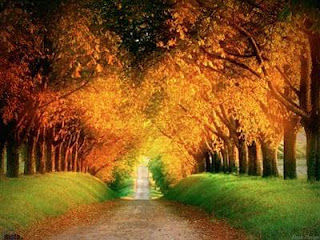"Enter by the narrow gate; for wide is the gate and broad is the way that leads to destruction, and there are many who go in by it. Because narrow is the gate and difficult is the way which leads to life, and there are few who find it." (Matt.7:13,14)To enter through the narrow gate means to leave every worldly luggage outside of the gate. One must save his own soul. Therefore, Christ said that he who wished to be His disciple had to deny self and all earthly relations, then take up his own cross, and follow Him. The cross is another symbol of the difficult road. For Peter and John, it meant to leave their business and life of security in order to follow Christ. For the rich young man, it meant to sell off his wealth, distribute it to the poor, and follow Christ. The rich man wasn't willing to leave his baggage behind; therefore, he refused to enter the narrow gate and chose the wide one instead. Jesus said that it would be easier for a camel to enter through a needle's eye than for a rich man to enter into the kingdom of heaven. They say that there was a gate called the "Needle's Eye", which was both narrow and low, and so caravan camels would have to unload their baggage and bow low in order to enter through it. The rich man wasn't willing to either unload his earthly baggage nor willing to bow low to a life that Christ chose to live Himself. How miserable is the state of a person who chooses the temporary enjoyment of this world and spurns the treasures of heaven!
To enter through the narrow gate also means to take the difficult path. Remember the gate is narrow and the road is difficult, but it is not crooked. It is still the King's Highway. However, it is not an easy road; firstly, because the road is given to us in a world that is now under the sway of Satan. We are just foreigners and pilgrims here. The devil has wide and broad roads in his kingdom; however, no matter how embellished and pompous they look, they are all going to perish with the world and the devil. The broad roads are roads to destruction. However, though the road of our Lord is very narrow and difficult, it is solid, strong, and secure. It will last forever. It leads to life.
Secondly, the gate is narrow and the road difficult because the gate is opposed to our natural inclination. Our natural inclination, after the Fall, has become sin and sinful pleasures, that is anything other than the enjoyment of God. Therefore, for a sinner, spending a few hours in worship is more difficult than a sports event, prayer is more tiresome than a day's labor, spending time with the Father is more difficult than spending time with friends and family. For the degenerate, even spending time with family is painful because he longs for sinful company. But, as a person becomes spiritual, the lusts of the flesh die and the things of God give more joy than anything else in the world (Rom.8:1; 1Jn.5:3). Yet, this doesn't mean that the flesh will not feel pain. However, the beauty of the narrow road is that one can rejoice even in the midst of pain and suffering (James 1:2; Acts 16:25; Phil.4:4).
Read Also: Heb.13:12-14; 2Cor.4:8-18; 1Pet.4:1; 1Pet.2:21-23

Comments
Post a Comment